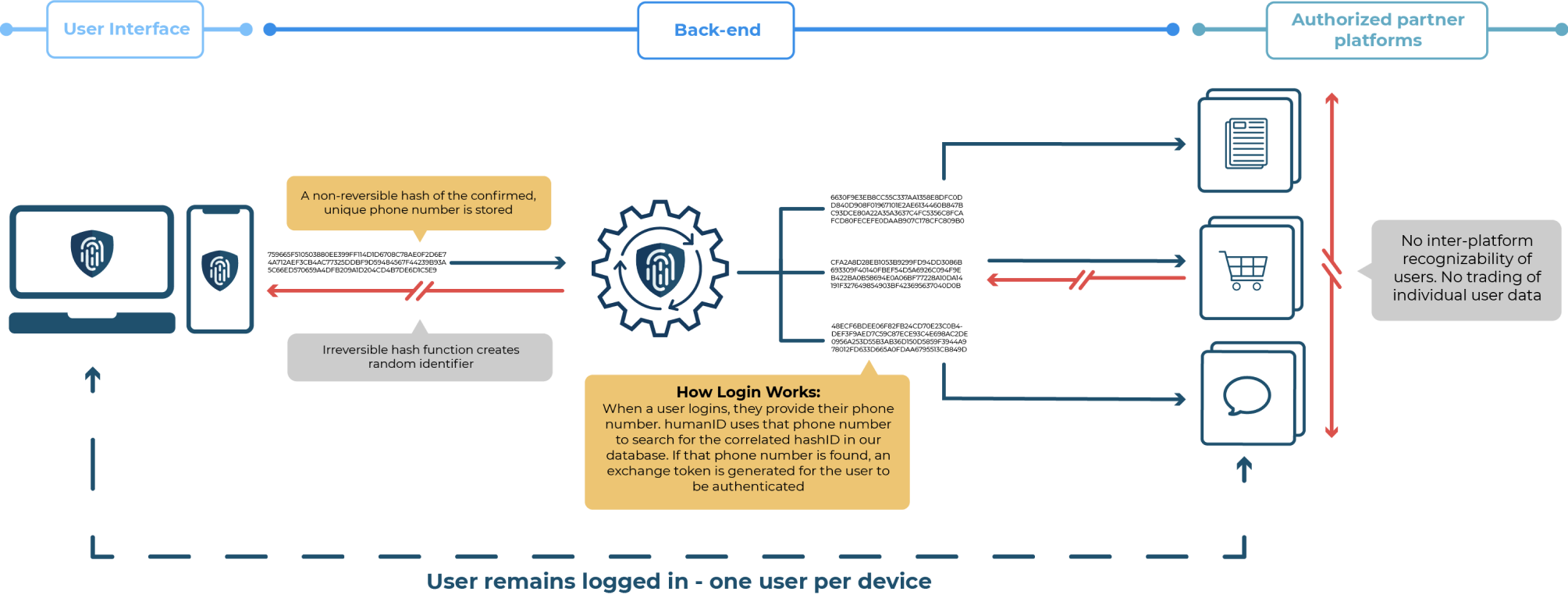How To Protect Yourself From Being Tracked Online
By Darya Daneshmand
August 18, 2021
There are a few things that simultaneously happen each time you log into your browser. Your data is accumulated, aggregated, and put to use in ways that are unbeknown to you. Even something as trivial as the meme you shared with your friend can be accessed and used to extract a piece of the puzzle that is your online identity. There are numerous ways that websites can go after a person’s online activity such as knowing what the user clicks on and how long they spend on a web page. This saved information can be helpful and convenient for users in a few ways:
- Using your search engine’s knowledge of where you are located to find the stores that are close to you.
- Showing you the products that you would be the most likely to buy based upon the data collected on the items you have viewed, clicked on, and purchased. With this information, websites can give you specific deals. (Quick tip: This doesn’t apply to airlines, so try looking for flights in incognito mode!)
- Making your digital life easier through the interconnectedness of services. For instance, allowing you to log in with Google or Facebook.
Of course, along with the pros are cons to how this information can be applied. For instance, though users may benefit from the ease of finding stores in their vicinity, they may also have exact details of their location from applications with enabled location services shared with companies. These businesses may sell that data to advertisers and other companies trying to benefit from consumer behavior analytics.
According to a 2019 study by the Pew Research Center, about 79% of American adults are at least somewhat concerned about how their information is being used by companies. More amazingly, only 6% felt they strongly knew what was being done with it. Much of what is being done with people’s data places them at risk. Consequently, it is essential to realize how your data can be used to proactively protect your company and your customers online.
So how are you being tracked?
Data is a broad term that can feel ambiguous, especially when talked about in the context of what sites can infer from your online presence. IP addresses, browser activity, and methods of interaction and access are a few of the many examples of data that is gathered by companies. Today, it is still possible to specify the people that own their electronic devices through canvas fingerprinting. Also, sites can collect information about the movements of each person’s mouse. Even though the data from one source might not present a lot of information about each user, when it is aggregated, it can reveal facts that, in many instances, should not be available online. Tracking can be practiced to enable online entities to unlock accurate predictions of digital user behavior. They can profile users into behavioral categories and put these profiles to use by analyzing patterns that appear once their information is aggregated.
Cookies, small pieces of data, and user accounts can be utilized to track browser activity. Cookies can be used to act as identification cards. One way sites can do this is through location tracking. Today, many phone applications that have location tracking enabled collect and sell people’s data for various purposes, like market analysis, pattern recognition, and consumer insights. Due to the prevalence of these practices, you should check your device’s settings to review the list of apps with access to your location because doing so will facilitate your ability to protect your location privacy. When you select the “While Using the App” option in iOS, you will enable people to know where you are when you are using the app. To be safe, you should select the option “Never” so that these applications can never know where you are. Some applications have internal settings that allow you to specify what this information may be used for as well, though the descriptions of its use have been found to often be misleading or incomplete.
Setting cookie settings and reviewing privacy permissions remains advisable. Those using Chrome can do so by navigating to Settings (three dots in the upper right beside the URL bar) → Privacy and Security → Cookies and Other Site Data. For instance, you may elect to block third-party cookies or send a “do not track” request with your browsing traffic. That being said, relying on protections from companies that have built empires from data naturally leaves you insufficiently protected. These companies have a lot to gain from collecting your information, and often shroud intentions in ambiguous policy language.
How do companies benefit from tracking users?
Tracking users can have multiple benefits for companies. Websites of a company can identify which populations most often visit their websites and the aspects of their websites that have the best results. They use this information to optimize user experience and improve content so that all of the users can better navigate that website or application. As a result, that website earns increased traffic and profit.
It is clear that companies directly benefit from the selling of user information in permanent ways. Data brokers have everything from your address to the state of your mental health in their dossiers. Worldwide analytics market revenue for big data, named for its volume and corresponding complexity of analysis, is forecasted to leap from approximately 15 to 68 billion dollars between 2019 and 2025.
In how many ways can one set of data be used? The growing field of data analytics is broadening these horizons: developments in complex artificial intelligence (AI) systems is heightening the potential purposes for data collection.
Increases in the rewards of data collection have paralleled increases in frequency of assaults on user privacy. 2020 became a year marked by record-breaking security breaches and quantities of lost data, and this trend continues. This happened because the technology became more ubiquitous once there became more sophisticated ways of executing these cyberattacks. Unsurprisingly, in recent years, the public’s scrutiny of the tech industry’s ties with federal agencies has risen substantially. This is because secrecy orders have become alarmingly commonplace. Here is one famous case: the company’s corporate vice president of Customer Security and Trust revealed in congressional testimony that the federal law enforcement presented Microsoft with 2400 to 3500 orders each during each of the past few years.
First-Party v. Third-Party Tracking
There are differences between first-party and third-party tracking, and it is important to differentiate between the two. Both use cookies that act as an identification card but are used for different purposes and in different ways. While a first-party cookie is set by the publisher via a site’s web server, a third-party cookie is set through an external party, such as an advertisement vendor. First-party tracking is primarily used to collect analytics and to store information that brings ease and convenience to the user experience while third-party tracking is used to track users between websites predominantly to provide targeted ads to people.

The California Consumer Privacy Act (CCPA) and the General Data Protection Regulation (GDPR) provide the most relevant legal structures for online tracking. But the law often struggles to keep up with the rapid pace of technological growth, and there are measures users can take to protect themselves.
How can you protect your information online?
Private browsing on Google may seem to provide a solution to data collections. While it is true that this browsing method can help mitigate access to browsing history, there is not much that it can accomplish beyond this limited scope. Though “Incognito ” modes typically do not save data to a user’s device, each person’s information is still available to its service provider and some of the websites that it has visited. Complaints that web activity is collected in “Incognito” mode resulted in a proposed class-action lawsuit in 2020. It sought five thousand dollars in damages per user of this browsing method since 2016. In the company’s defense a Google spokesperson said, “As we clearly state each time you open a new incognito tab, websites might be able to collect information about your browsing activity during your session.”

In contrast, anonymous search engines are able to provide enhanced security to protect your identity and maintain your anonymity. Mainstream browsers, such as Google, can place your privacy at risk and can create a filter bubble. Here are a few services that can be used:
- Private browsing with web browsers, such as Tor. Tor Browser reroutes browsing activity through a number of anonymous servers, hiding user location and adding substantial layers of protection to make finding the identity and online activity of users near impossible.
- Search engines, such as DuckDuckGo, which do not collect or use personal data, such as IP addresses.
Synonymous with the “dark web” or “deep web,” Tor can be used by those who seek shortcuts to censorship in their country. This browser has been embraced by journalists and advocates of free speech. Though Tor is not yet available for iPhones and iPads, The Tor Project recommends using the Onion Browser. Despite its many advantages, it remains essential for users to educate themselves on how to safely use the browser, in a couple of ways, such as using the browser’s safety slider and a good antivirus software and VPN. Using an anonymous browser alongside a VPN is a common and recommended practice.

There are a number of ways users can stay safe on the internet, and using an anonymous login such as humanID is another great option. humanID’s one-click anonymous login provides user privacy while simplifying the login process and eliminating password fatigue. The technology safeguards users against bots and as well as malicious and invasive forms of data collection, using an irreversible identifier created by hash functions, as illustrated in the diagram below. No user data is stored with us in the process.

Organizations stand to gain a great deal from the additional layer of security provided by an anonymous login. Our open source non-profit is on a mission to make the internet a safer place. So why not partner with us?
Navigating your online presence and safety can seem like a daunting task, but knowing your options is a great start. Data may be the new currency, but its success should not hinge on the exploitation of those generating it. It’s time to fight relentless tracking, a development we shouldn’t have to accept as our status quo.
